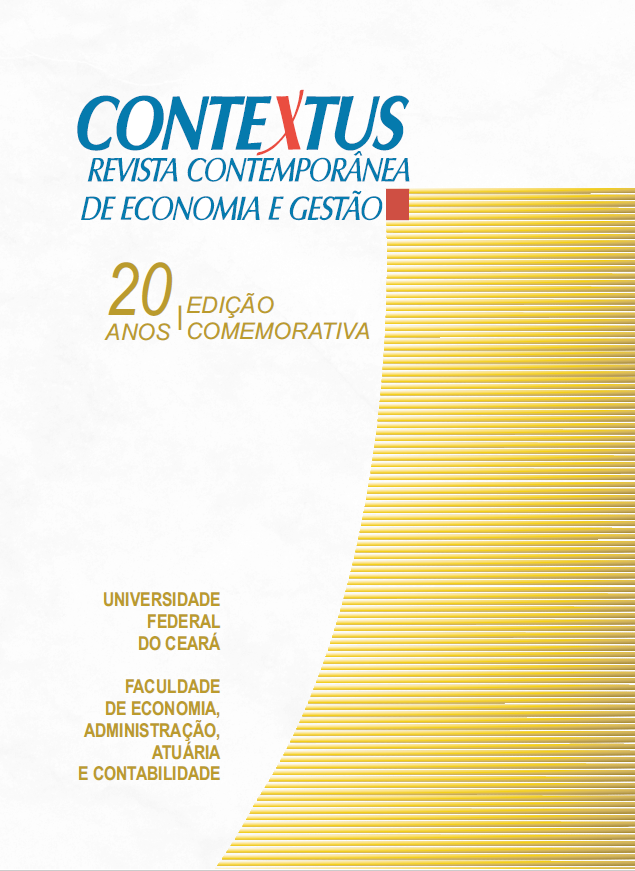Elaboration of cases for teaching Administration
DOI:
https://doi.org/10.19094/contextus.2023.88618Keywords:
case method, management, teaching, learning, case writingAbstract
This paper offers theoretical and practical elements for cases elaboration in management courses. Initially, it presents advantages and limitations of the case method. Then, it indicates when cases are useful. It also discusses the philosophical and psychological fundaments of the case method. Most of the text, however, is dedicated to explaining the conduct in the preparation of the cases, involving: problem identification, definition of objectives, case localization, data collection, analysis of its difficulty, testing and final writing. The paper gives special attention to the process of writing cases, with the presentation of norms and suggestions of text structure, writing style and presentation form.
References
Barrass, R. (1986). Os cientistas precisam escrever: guia de redação para cientistas, engenheiros e estudantes. São Paulo: TA Queiroz.
Becker, F. (1992). O que é construtivismo. Revista de Educação AEC, 21(83), 7-15.
Bloom, B. S. et al. (1983). Taxionomia de objetivos educacionais: domínio cognitivo. 8 ed. Porto Alegre: Globo.
Cascade Center for Public Service. (1999). Welcome to the Case Method. Public Service Curriculum: Washington.
Christensen, C. R., & Hansen, A. J. (1987). Teaching and the Case Method: text, cases, and Readings. Boston, MA: Harvard Business School Press.
Dewey, J. (1976). Experiência e educação. 2. ed. São Paulo: Nacional.
Erskine, J. A., Leenders, M. R., & Mauffette-Leenders, L. A. (1998). Teaching With Cases. Londres: School of Business Administration, The University of Western Ontario.
Gentile, M. C. (1990). Twenty-five questions to ask as you begin to develop a new case study. Harvard Business School Publishing.
Gil, A. C. (1997). Metodologia do ensino superior. São Paulo: Atlas.
Harling, K. (2004). Overview of the case method. The Maple Leaf Conference. Montreux, Suíça.
Leenders, M. R., Maufette-Lenders, L. A., & Erskine, J. A. (2001). Writing cases. 4 ed. Londres: Ivey Publishing.
Leidner, D. E., & Jarvenpaa, S. L. (1995). The use of information technology to enhance management school education: a theoretical view. MIS Quarterly, 29(3), 265-291. http://www.jstor.org/stable/249596
Lewin, K. (1973). Problemas de dinâmica de grupo. São Paulo: Cultrix.
Mauffette-Leenders, L. A., Erskine, J. A., & Leenders, M. R. (2000). Learning with Cases. 4 ed. Londres: Ivey Publishing.
Maximiano, A. C. A. (2001). Método de caso no ensino da Administração. In G. G. Boog, Manual de treinamento e desenvolvimento: um guia de operações. São Paulo: Makron/ABTD.
McNair M. P. (1954). The case method at Harvard Business School. Nova York: McGraw-Hill.
Naumes, W., & Naumes, M. (1999). The Art and Craft of Case Writing. Thousand Oaks, CA: Sage Publications.
Volpe, G. (2002). Case Studies. Londres: London Metropolitan University.
Wasserman, S. (1994). Introduction to Case Method Teaching: a Guide to the Galaxy. Nova York: Teachers College Press.
Downloads
Published
How to Cite
Issue
Section
License
Copyright (c) 2023 Journal: only for the 1st publication

This work is licensed under a Creative Commons Attribution-NonCommercial 4.0 International License.
The authors, while doing the submission, accept the notice below:
We authors hold the copyright related to our paper and transfer Contextus journal the right for the first publication with a Creative Commons’ international license of the modality Attribution – Non-commercial 4.0, which in turn allows the paper to be shared providing that both the authorship and the journal’s right for initial release are acknowledged.
Furthermore, we are aware of our permission to take part in additional contracts independently for non-exclusive distribution of the version of our work published in this journal (e.g. publishing it in an institutional repository or as a book chapter), while acknowledging both the authorship and the journal’s initial publication.
We also certify that the paper is original and up to this date has not been released in any other journal, Brazilian or of another nationality, either in Portuguese or another language, as well as it has not been sent for simultaneous publication in other journals.
Last, we not only know that plagiarism is not tolerated by Contextus but also certify the paper presents the sources of passages from cited works, including those authored by ourselves.









3.png)


1.jpg)



1.jpg)


1.jpg)






.jpg)



1.jpg)

1.jpg)


1.jpg)

1.jpg)
1.jpg)
2.png)




1.jpg)
2.jpg)

1.jpg)





1.jpg)


1.jpg)
1.jpg)
